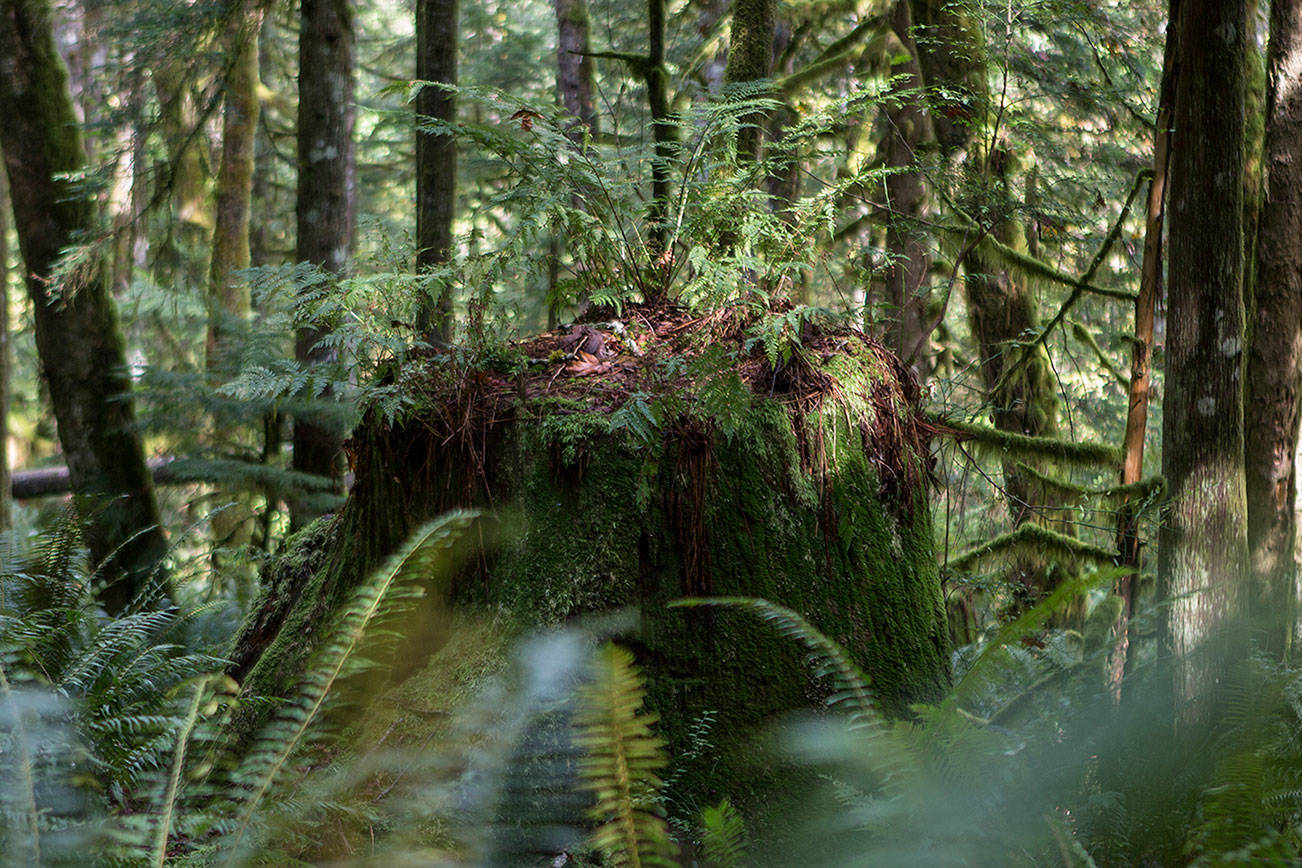By Cameron Sheppard, WNPA News Service
Washington state legislators are organizing bipartisan support for the timber industry amid the realization that forestry draws carbon from the atmosphere and could help the state meet its carbon reduction goals.
House Bill 2528 and companion Senate Bill 6355 intend to support the growth of forestry and promote the production and use of timber products in the state.
Trees use carbon dioxide from the atmosphere as part of the photosynthesis and growth process. Some studies suggest that wood is about 50% carbon by mass.
Cindy Mitchell, Senior Director of Public Affairs for Washington Forest Protection Association, said this legislation will help recognize the role forests, both public and private, play in reducing atmospheric carbon. Mitchell said the state’s 8 million privately-owned acres of working forests account for a 12% annual reduction of the state’s carbon emissions.
Mitchell said the recognition of forestry’s reduction of atmospheric carbon could have an impact on the industry if a carbon tax were implemented. It could incentivize growth in the sector and give a competitive edge to timber against industries like concrete or steel.
Edie Sonne-Hall, founder of Three Trees Consulting, testified to the House Rural Development, Agriculture and Natural Resources Committee on Tuesday in support of this legislation. She said if Washington factored forestry’s impact on atmospheric carbon, the state would then be accounting for carbon in a similar way to much of the international community.
Jason Spadaro, President of SDS Lumber, told the committee this legislation would recognize the forestry and timber industry as part of the solution to climate change. Spadaro said this bill would promote rural economic development and the creation of jobs as well as incentivize the management of forests and therefore reduce wildfire risk.
“This approach makes communities part of the solution,” Spadaro said.
Mark Streuli, representative of the Northwest District Council of Ironworkers, testified against language in the bill to “promote” markets for the state’s forestry products. Streuli said this would directly compete with iron workers.
Another provision of these bills would set up a Forest Carbon Reforestation and Afforestation Account that would be used to provide incentives for private landowners to plant and maintain trees to help the state meet its atmospheric carbon reduction goals.
It is not yet clear how funds will end up in the account, other than through budget appropriations. The bill does include a provision that revenue from a potential carbon tax could be put into the account.


